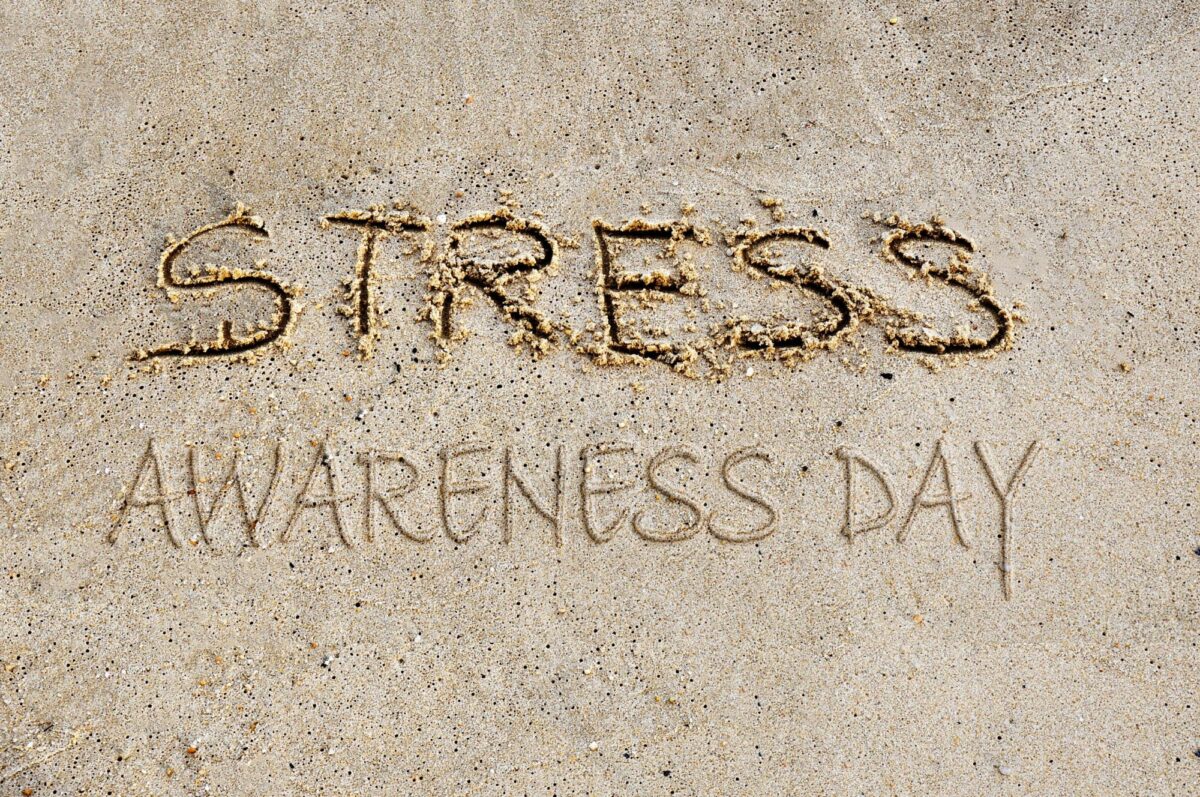SweetTree Discover Our Blog
,Stress Awareness for Carers: Top Tips for Making it Through

Held on Wednesday November 4th, National Stress Awareness Day is run by the International Stress Management Association (ISMA) and after the prolonged Covid-19 pandemic we are experiencing across the globe, stress has never been a bigger issue than now. A 2020 study by the Mental Health Foundation found that in the past year, 79% of people have felt so stressed they have been overwhelmed or unable to cope – compared to 59% in 2018.
Just 1% state that they ‘never’ experience stress, while a lucky 17% ‘rarely’ experience stress.
Caring for a loved one can be stressful, it can mean that someone forgets themselves and focuses purely on another. Over time the lack of self-care and the demands of caring for another can have a cumulative effect and a negative impact. To consider maintaining the ability to provide care and support to a loved one in the longer term the ‘carer’ needs to find the way to self-care first. Recognising the symptoms of stress in ourselves maybe a good place to start.
Symptoms or indicators of stress
Because of these stark and worrying statistics, it is important to recognise the warning signs before you, or someone you know, reaches the point of severe distress. Keep an eye out for the warning signs of stress.
Signs of caregiver stress can include:
• Feeling overwhelmed or constantly worried.
• Feeling tired often.
• Getting too much sleep or not enough sleep.
• Gaining or losing weight.
• Becoming easily irritated or angry.
• Losing interest in activities you used to enjoy.
• Feeling sad.
• Having frequent headaches, bodily pain or other physical problems.
While caring for a loved one can be very rewarding, it also involves many stressors. It can be particularly disheartening if you feel that you’re in over your head, if there’s no hope that your family member will get better, or if, despite your best efforts, their condition is gradually deteriorating. With normal daily life so different for many than before due to the pandemic today more than ever family carers need recognition and support.
If stress is left unchecked, it can take a toll on your health, relationships, and state of mind—eventually leading to burnout, a state of emotional, mental, and physical exhaustion. And when you get to that point, both you and the person you’re caring for suffer.
Exercise
Exercising releases endorphins, which improve your mood, as well as distracting you from any stress you’re experiencing. Find a sport or activity that you enjoy and try to fit it into your routine. Even a half-hour walk around the block can help to relieve tension.
Get enough sleep
Almost 25% of people in Britain have problems with sleep on a regular basis, according to The Sleep Council. Getting enough good quality sleep is a crucial part of our overall wellbeing and can actually help reduce stress and anxiety.
For adults, it’s recommended you get between 7-9 hours’ sleep per night – any less than that on an ongoing basis can have a negative effect on your wellbeing. The NHS has a useful guide that gives tips on how to improve the quality of your sleep you can read here.
Reduce alcohol and nicotine consumption
According to the NHS, levels of adult smokers are slightly higher than non-smokers and adolescent smokers report increasing levels of stress as they develop regular smoking patterns. Nicotine dependency makes stress worse as smokers tend to rely on it to control their mood.
It isn’t healthy to use alcohol as a way of de-stressing or coping with issues either. Eva Cyhlarova from The Mental Health Foundation says: “Over time, heavy drinking interferes with the neurotransmitters in the brain that are needed for good mental health. While alcohol may help deal with stress in the short term, in the long run it can contribute to feeling of depression and anxiety and make stress harder to deal with.”
Time to relax – Try practising mindfulness!
Be kind to yourself and schedule in some ‘me’ time each week. Do something that makes you happy and relaxes you, such as reading a book, having a bath or listening to music.
Getting swept up in the hustle and bustle of everyday life affects us all. But sometimes in the quest to ‘get it all done’, we can forget to take time out of our busy schedules and invest in ourselves. Mindfulness is the conscious effort to do just that. Forget about bad things that have happened in the past, stop worrying about what may happen in the future, and focus solely on the present moment… although this can be easier said than done!
You don’t have to consider yourself spiritual to benefit from meditation. Try out the Headspace app free trial or a lesson from the Calm app – which has some brilliant night time stories.
Socialise
Having a support network of family, friends and colleagues improves your resilience to stress. Try to socialise regularly – even if that might need to be on Zoom during this time (!) – having a laugh with friends and family is a great way of combatting stress.
Take time out…
Whatever ways to minimise stress are most effective for you, make sure you take regular time out to escape the daily grind. Engage in something that’s going to allow you the opportunity to relax, de-stress and reset – it really will make a significant difference to how you feel! If you know someone who’s regularly stressed out and struggles to unwind, share this blog post with them! Encourage others to make time for a little relaxation, too.
If you’re really struggling and need someone to speak to urgently, The Samaritans are available 24/7 365 days a year for free on 116 123 and will listen to you in a safe and confidential space.
